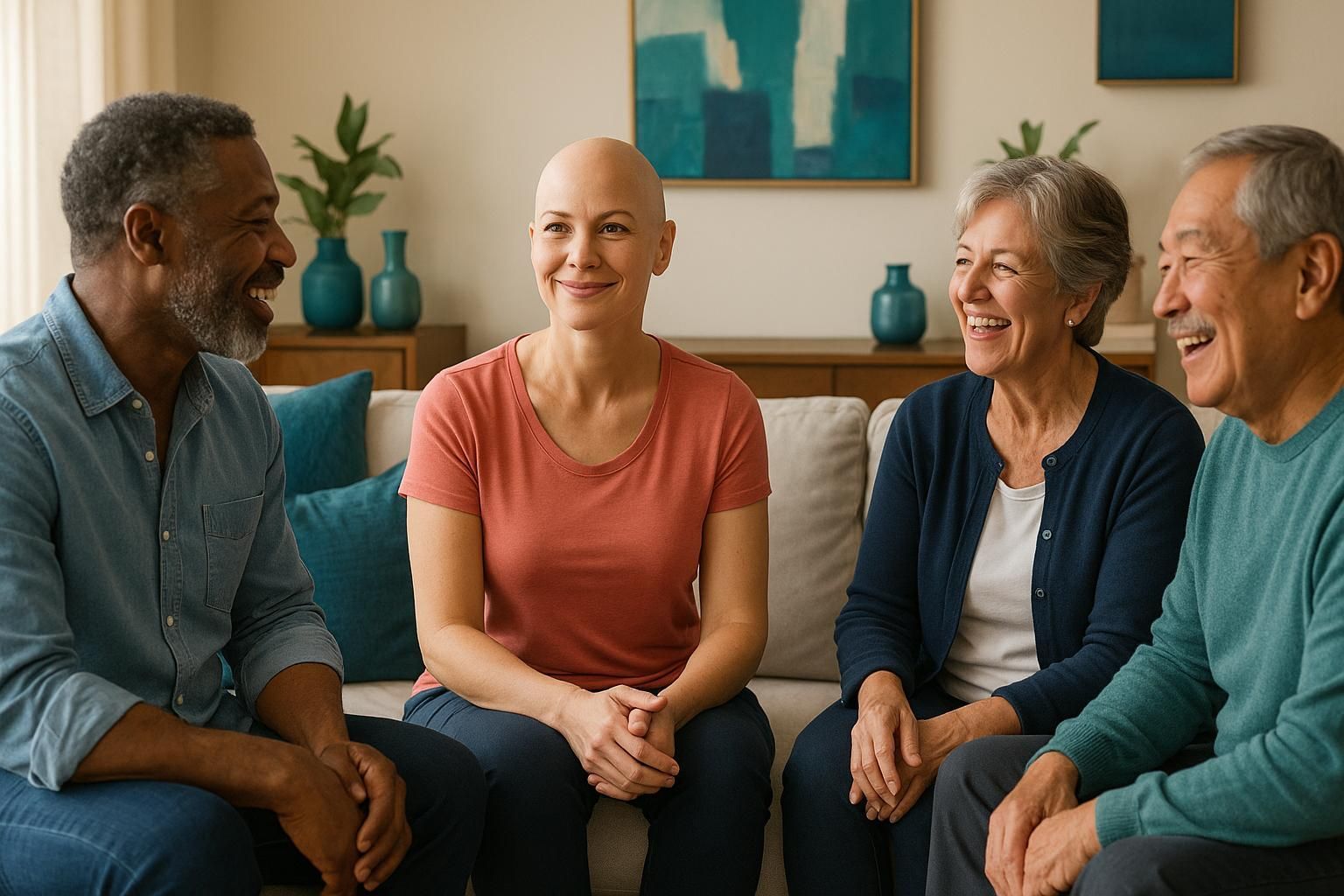What Is a Fecal Incontinence Specialist? The Answer Might Surprise You
By Dr. Ritha Belizaire
Quick Insights:
A fecal incontinence specialist is a medical expert who diagnoses and treats bowel leakage (accidental loss of stool). They address underlying causes like muscle weakness or nerve problems. Medical studies highlight the importance of prompt, specialized care to restore dignity and prevent worsening issues. Learn more from Mayo Clinic.
Key Takeaways:
- Fecal incontinence can result from weak pelvic floor muscles, nerve damage, or chronic conditions like diabetes.
- Up to 15% of older adults are affected, but most never seek help due to embarrassment.
- Treatments range from diet changes and pelvic floor therapy to advanced options like sacral nerve stimulation.
- Seeing a specialist improves your comfort, privacy, and chances of a life-changing result when previous treatments failed.
Why It Matters:
Living with fecal incontinence causes stress, isolation, and anxiety about leaving home. Understanding that compassionate, proven help exists empowers you to reclaim confidence and enjoy social moments again, without the fear and shame you may have felt for years.
Introduction
As a board-certified colorectal surgeon serving Houston, I've seen how distressing fecal incontinence can upend daily life and independence. A fecal incontinence specialist is a physician with advanced training in diagnosing and managing accidental bowel leakage—a condition where control over bowel movements is lost, often due to weak muscles, nerve damage, or illnesses like diabetes. It's more common than you'd guess, affecting up to 15% of older adults, yet embarrassment keeps most people silent and suffering.
Addressing this vulnerable topic takes equal amounts of expertise and empathy. My focus is blending cutting-edge approaches—like sacral nerve stimulator trials or in-office treatments under nitrous oxide—with care that puts dignity and comfort first. Research from leading institutions highlights that prompt specialist care not only improves symptoms, but also restores confidence and social connection.
You don't have to keep staying home or making backup plans—for many in Houston, real relief can start today.
What is Fecal Incontinence?
Fecal incontinence—sometimes called bowel leakage—is the accidental loss of stool or gas. It's not just a minor inconvenience; it can disrupt your social life, confidence, and even your willingness to leave home. The most common culprits are weakened pelvic floor muscles, nerve damage (often from childbirth, surgery, or diabetes), and chronic constipation.
You might notice:
- Sudden urges you can't control
- Leaking when you cough, laugh, or exercise
- Trouble making it to the bathroom in time
- Ongoing skin irritation around the anus
In my experience, many patients feel embarrassed or alone, but you're far from it. Up to 15% of older adults deal with some form of bowel incontinence. I always remind my patients: this is a medical condition, not a personal failing.
When to Seek Medical Attention
If you experience sudden, severe loss of bowel control, blood in your stool, or new weakness or numbness in your legs, contact a physician immediately. These symptoms may signal urgent medical issues.
Why See a Fecal Incontinence Specialist?
You might wonder, "Why not just talk to my regular physician?" While primary care physicians are a great starting point, a fecal incontinence specialist—like me—brings advanced training in the complex anatomy and function of the pelvic floor, rectum, and nerves. I use specialized tools and tests to pinpoint the root cause, not just treat the symptoms.
Seeing a specialist means:
- Faster, more accurate diagnosis
- Access to advanced treatments (like sacral nerve stimulation or in-office procedures)
- A care plan tailored to your unique needs and comfort level
I've found that many patients have tried over-the-counter remedies or even prescription medications with little relief. As a board-certified colorectal surgeon, I can offer options that go beyond the basics, including minimally invasive procedures and therapies you won't find at a general clinic. My goal is to restore your dignity and help you get back to living life on your terms.
Meet Your Care Team
When you come to Houston Community Surgical, you're not just seeing me—you're meeting a team dedicated to your comfort and privacy. As a dual board-certified colorectal surgeon, I work closely with pelvic floor therapists, nurse practitioners, and support staff who understand the sensitive nature of bowel incontinence.
Who treats fecal incontinence?
Fecal incontinence is best managed by a team that may include:
- Colorectal surgeons (like me)
- Gastroenterologists
- Pelvic floor physical therapists
- Nurse practitioners with GI expertise
- Nutritionists
I coordinate your care so you never feel lost in the shuffle. My team and I are committed to making every visit as stress-free as possible, from your first call to your last follow-up.
Diagnosis and Evaluation
Getting to the bottom of bowel leakage starts with a detailed conversation—no judgment, just honest talk. I'll ask about your symptoms, medical history, and any previous treatments. Then, I use specialized tests to pinpoint the cause:
- Anorectal manometry (measures muscle strength)
- Endoanal ultrasound (looks for muscle tears)
- Nerve studies
- Stool tests and bloodwork
According to clinical guidelines, a thorough evaluation is essential for choosing the right treatment path. In my practice, I've seen how a careful, stepwise approach can uncover issues that might be missed in a rushed visit. My goal is to make sure you feel heard and understood every step of the way.
Treatment Options for Fecal Incontinence
There's no one-size-fits-all solution for bowel leakage. I tailor every plan to your needs, starting with the least invasive options and moving up only if necessary. Here's a quick overview:
- Diet and lifestyle changes
- Pelvic floor therapy
- Medications
- Advanced procedures (like sacral nerve stimulation)
What are the main treatments for fecal incontinence?
The most effective treatments include:
- Dietary adjustments (fiber, fluid management)
- Pelvic floor exercises and biofeedback
- Medications (anti-diarrheals, bulking agents)
- Sacral nerve stimulation (a "pacemaker" for your bowels)
- Surgery for severe cases
I always start with conservative measures, but for those who need more, advanced therapies can be life-changing. Long-term studies show significant improvement in symptoms and quality of life with these approaches.
Diet and Lifestyle Remedies
Simple changes can make a big difference. I often recommend:
- Increasing fiber to firm up stool
- Avoiding trigger foods (like caffeine or spicy meals)
- Scheduling bathroom visits
- Using skin barriers to prevent irritation
Conservative measures are the first step for most patients as supported by expert guidelines. In my experience, these changes alone can bring significant relief for many.
Pelvic Floor Therapy
Pelvic floor therapy involves exercises and sometimes biofeedback to strengthen the muscles that control bowel movements. I work with specialized therapists who guide you through:
- Kegel exercises
- Biofeedback sessions
- Electrical stimulation (when needed)
This approach is especially helpful for those with muscle weakness or after childbirth. I've seen patients regain control and confidence with just a few weeks of dedicated therapy.
Medications
Medications can help by firming up stool or reducing urgency. Common options include:
- Anti-diarrheal drugs (like loperamide)
- Fiber supplements
- Bulking agents
Newer therapies are emerging, and I stay up-to-date on the latest research as highlighted in recent systematic reviews. I always discuss potential side effects and tailor choices to your lifestyle.
Surgical and Advanced Treatments
For persistent cases, advanced options may be needed. These include:
- Sacral nerve stimulation (a minimally invasive "pacemaker" for the bowels)
- Sphincter repair surgery
- Injectable bulking agents
Sacral neuromodulation is now considered a first-line surgical option for many patients according to clinical guidelines. Long-term studies show significant improvement in symptoms and quality of life with this approach. In my practice, I offer in-office procedures under nitrous oxide for comfort, and I've seen patients who thought they'd "tried everything" finally find relief.
For some, surgery is the best path, especially if there's a clear muscle tear or severe nerve injury. I always explain the risks and benefits in plain language, so you can make an informed choice.
FAQs About Fecal Incontinence Specialists
Is radiofrequency energy treatment recommended for fecal incontinence?
No, radiofrequency energy delivery is not recommended for treating fecal incontinence
according to expert guidelines.
What are the success rates for sacral nerve stimulation?
Success rates for sacral neuromodulation vary, but studies show 20.9% to 87.5% of patients experience significant improvement
in long-term outcomes.
How do I know if I need to see a specialist?
If you've tried basic treatments without relief, or your symptoms are affecting your quality of life, it's time to see a physician with advanced training in bowel control.
Are there risks with advanced treatments?
All procedures carry some risk, but I take every precaution to minimize complications. I'll walk you through what to expect and answer all your questions.
Can fecal incontinence be cured?
While not every case is "cured," most patients see major improvements with the right combination of therapies. My goal is always to help you regain control and confidence.
What if I'm too embarrassed to talk about it?
You're not alone—many people feel this way. I create a judgment-free space where you can share your concerns openly. Remember, this is a medical issue, not a personal flaw.
Patient Success Stories
Many of my patients arrive feeling hopeless, convinced nothing will help. I've seen firsthand how the right diagnosis and a personalized plan can turn things around. One woman told me she finally attended her granddaughter's recital without fear—something she hadn't done in years.
Research and Resources
If you want to dig deeper, I recommend these trusted resources:
- Mayo Clinic: Fecal Incontinence Overview
- PubMed: Long-term Outcomes of Sacral Nerve Stimulation
- ASCRS Clinical Guidelines
- AJG: New Therapies for Fecal Incontinence
- ScienceDirect: Surgical and Advanced Treatments
Get Expert Help for Fecal Incontinence
You don't have to keep suffering in silence. I offer same-day and next-day appointments, and for those outside Houston, virtual second opinions are available at www.2ndscope.com. According to the Mayo Clinic, prompt specialist care can dramatically improve symptoms and restore your quality of life as outlined in expert guidance. If you're ready to take the next step, I'm here to help—no judgment, just answers.
What Our Patients Say on Google
Patient experiences are at the heart of what I do—every story shapes how I approach care, especially with sensitive issues like fecal incontinence. It's not just about medical expertise; it's about making you feel heard, respected, and comfortable from the very first visit.
I recently received feedback that captures what we aim to provide in our Houston practice. This reviewer shared:
"I met with Dr. Belizaire for an upcoming surgery. I can't speak enough about how relatable Dr. Belizaire is and comfortable I felt with her explanation of the plan and her responses to my questions."
— Mlyn
You can read more patient experiences on Google.
Hearing that patients feel at ease and fully informed is the best endorsement of my approach. If you're struggling with bowel leakage, know that compassionate, judgment-free care is possible—and you don't have to face it alone.
Fecal Incontinence Specialist Care in Houston
Living in Houston means you have access to advanced, compassionate care for fecal incontinence right in your own backyard. Our city's diversity brings a wide range of health needs, and I see firsthand how lifestyle, diet, and even Houston's famously spicy cuisine can play a role in bowel health.
Houston's large medical community allows for seamless collaboration with pelvic floor therapists, nutritionists, and other specialists—all under one roof at Houston Community Surgical. Whether you're navigating busy city life or caring for family, I make it a priority to offer same-day and next-day appointments so you don't have to wait for answers.
If you're in Houston and struggling with accidental bowel leakage, don't let embarrassment keep you from getting help. Call 832-979-5670 to schedule a confidential consultation, or visit us for a personalized care plan that fits your lifestyle. Your comfort and confidence are just a phone call away.
Conclusion
If you're searching for a fecal incontinence specialist, know that you're not alone—and you don't have to keep missing out on life's moments. In summary, prompt, compassionate care can restore your confidence, dignity, and daily comfort. As a board-certified general and colorectal surgeon, I offer advanced treatments like sacral neuromodulation, minimally invasive procedures, and even in-office care under nitrous oxide for those who feel anxious. My focus is always on your comfort and privacy, whether you're dealing with bowel leakage, rectal prolapse, or colorectal cancer.
If you're in Houston, call 832-979-5670 for a same-day or next-day appointment. Not local? I also offer virtual second opinions at www.2ndscope.com—so expert help is always within reach. Don't let embarrassment keep you from relief; together, we can help you reclaim your confidence and quality of life. For more on treatment options and outcomes, see this comprehensive Mayo Clinic overview.
Before you leave, consider subscribing to my colorectal health newsletter to stay updated on the latest treatments and tips.
This article is for educational purposes only and should not be used as a substitute for professional medical advice, diagnosis, or treatment. Always seek the advice of your physician or other qualified healthcare provider with any questions you may have regarding a medical condition or treatment options. Never disregard professional medical advice or delay in seeking it because of something you have read in this article.
Frequently Asked Questions
What does a fecal incontinence specialist do?
A fecal incontinence specialist is a physician with advanced training in diagnosing and treating bowel leakage. I use specialized tests to find the root cause and offer a range of treatments—from dietary changes and pelvic floor therapy to advanced procedures—so you can regain control and confidence in your daily life.
Where can I find a fecal incontinence specialist in Houston?
You can find expert care for fecal incontinence right here in Houston at my practice, Houston Community Surgical. I offer same-day and next-day appointments, plus virtual second opinions for those outside the area. My goal is to provide fast, compassionate help so you don't have to wait for relief.
How do you help patients feel comfortable during sensitive exams or treatments?
I understand that discussing and treating bowel issues can be embarrassing or stressful. That's why I offer a judgment-free environment and, for those who feel anxious, in-office procedures under nitrous oxide. My approach is always focused on your dignity, privacy, and comfort—every step of the way.
SHARE ARTICLE:
SEARCH POST:
RECENT POSTS:






